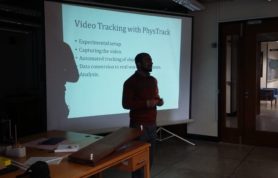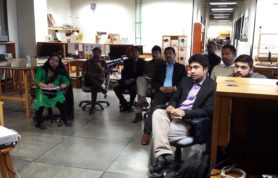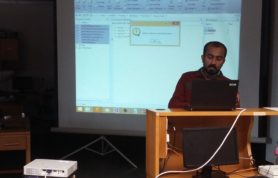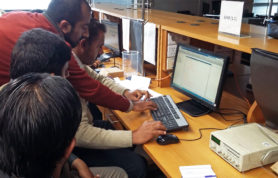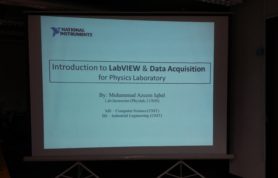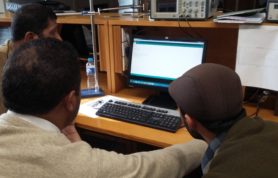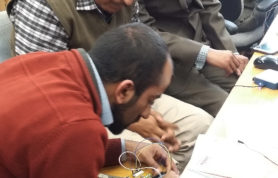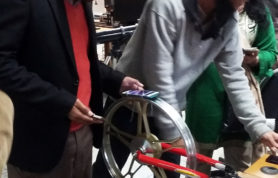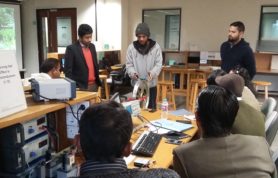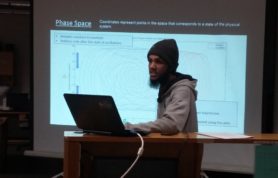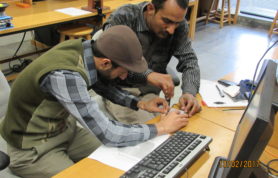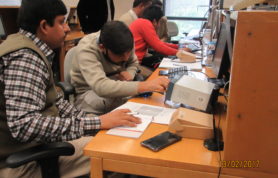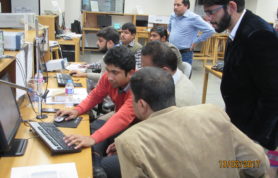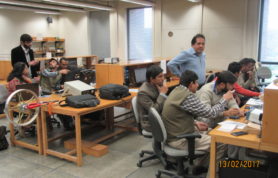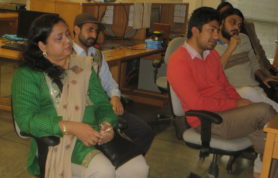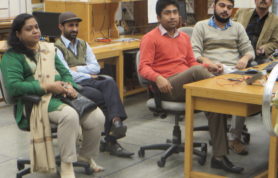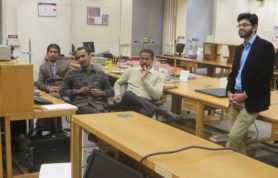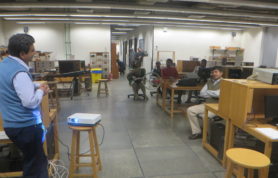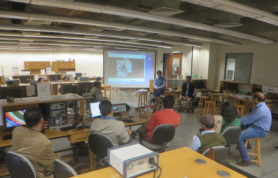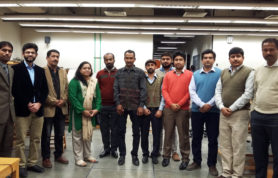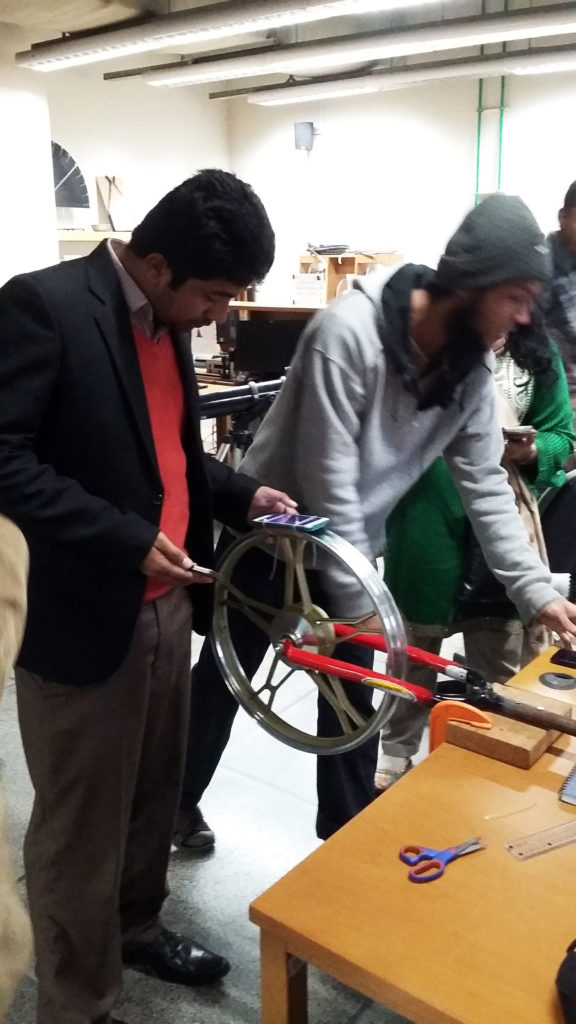 An extensive three-day workshop training on the integration of modern technology to experimental physics education completes at Physlab. Delegates from the Institute of Business Administration (IBA) and Sukkur community colleges, comprising of faculty members, engineers, a science educator and a technician were drilled through varying sessions of demonstrations and hands-on training in tools and techniques for building a technology integrated modern physics laboratory.
An extensive three-day workshop training on the integration of modern technology to experimental physics education completes at Physlab. Delegates from the Institute of Business Administration (IBA) and Sukkur community colleges, comprising of faculty members, engineers, a science educator and a technician were drilled through varying sessions of demonstrations and hands-on training in tools and techniques for building a technology integrated modern physics laboratory.
After a brief overview of Physlab, participants were introduced to “Measurements and Uncertainty” through a practical approach in an attempt to develop a basic understanding of the uncertain nature of taking measurements. The session was followed by a dynamic introduction to “PhysTrack”, an open-source software tool developed by Umar Hassan for video tracking enabling physicist in performing various kinematics experiments using a video from a simple digital camera. Next day was all dedicated to LabVIEW and data acquisition for physics laboratory by Azeem Iqbal. It comprised of learning LabVIEW environment and a hands-on introduction to signal acquisition and processing. Participants exhibited a keen interest in incorporating LabVIEW to their home-grown experiments. Further, in a rigorous training session on Arduino, the participants wrote small programs and were encouraged to think of ways this technology could be used in physics experimentation. This was not all! Students named Waqar and Usman from physics department demonstrated the use of smartphone sensors for data acquisition and analysis. Using a mobile phone, attached to a rotating wheel, they exhibited how these devices could also be used for creating low-cost yet interesting physics experiments.
Before closing, a healthy discussion was held, involving a potential integration of these tools in the conventional set of experiments listed by the Board of Intermediate and Secondary Education (BISE) Sindh. The participants felt motivated in utilizing these tools to build their own setups and that they will encourage students to experience the valuable journey of building an experiment. The workshop concluded with closing remarks by Dr. Sabieh Anwar who thanked participants for their initiative in transforming Physics education in their institution and extended full support in future collaborations as well.
The workshop reiterates that Physlab strongly believes in the dissemination of knowledge through sharing expertise, resources, and training in physics education with sister institutions across Pakistan.
Following are some of the scenes from the workshop.
